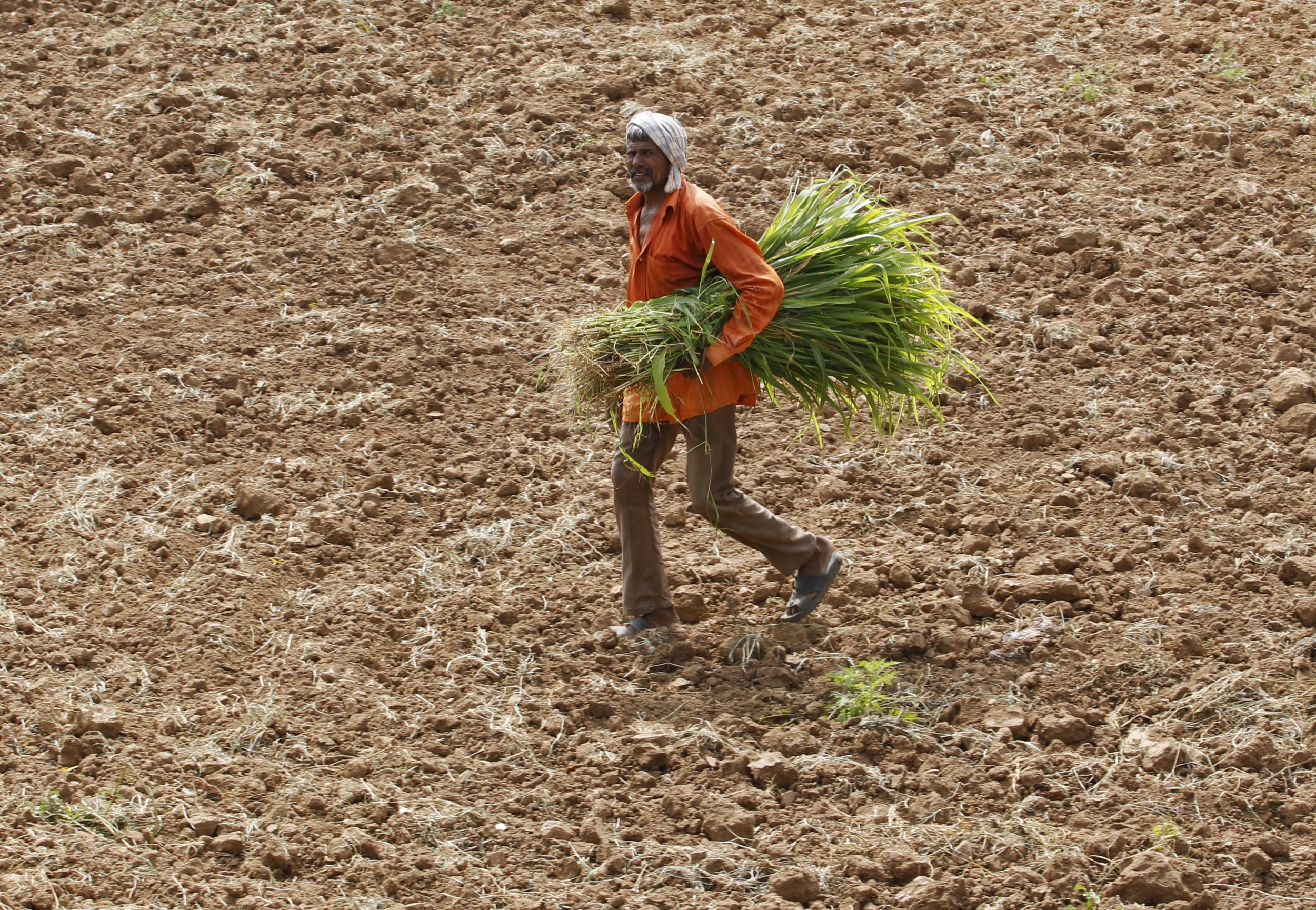
By 2050, global climate change will have made its mark on nutritional health. New research published March 2 in The Lancet finds that by making food less available, climate change could account for more than 500,000 deaths that year.
The Intergovernmental Panel on Climate Change says climate change already has reduced crop yields. For example, in Brazil corn yields are down 8 percent, and in Russia wheat yield has dropped 14 percent. When crop yield goes down, food prices go up, as do a whole host of health problems. A study led by Marco Springmann from the University of Oxford is the first to estimate exactly how coming climate change will impact nutritional security, and the subsequent effects on diet and body weight—and in turn mortality—across the planet.
The researchers assumed a scenario where global air temperature in 2050 is about 2 degrees warmer than it was between 1986 and 2005. They first used an agricultural model to simulate what effects that change will have on food production and consumption. Then they used a health model to assess how these changes in food production and consumption will impact human health. Compared with a fictional world without climate change, in a world where climate change continues as predicted, where agriculture is crippled by more drought, heat, and flooding, each person would see 3.2 percent less food on their plates every day overall. In addition, by 2050, under that same climate change scenario, we can anticipate the average person will eat 4 percent fewer fruits and vegetables, and 0.7 percent less red meat. Red meat is bad for your health, so lowering consumption of beef globally is a good thing. But far less global consumption of red meat, however, couldn't make up for the decrease in fruits and vegetables as part of a healthy diet.
These dietary changes add up to 529,000 lives lost for the combined 155 regions evaluated in the study. The researchers predict that in Africa and Asia, low-income people will suffer more deaths from not getting enough calories, or from risk factors related to weight. In higher income countries, deaths will rise as a result of illnesses stemming from reduced intake of fruits and vegetables high in nutritional value. Overall, China and India suffered the most in the study's models, accounting for nearly three-quarters of all preventable deaths related to less food availability. On a per capita basis, Greece and Italy would fare the worst, with an estimated 124 deaths per million people and 89 deaths per million people, respectively.
But, models are just that: predictions. Should adequate actions be taken to reduce global carbon emissions, 2050 could present a better picture than the one the study provides. "Climate change is likely to have a substantial negative impact on future mortality, even under optimistic scenarios," says Springmann. "Adaptation efforts need to be scaled up rapidly. Public health programs aimed at preventing and treating diet and weight-related risk factors, such as increasing fruit and vegetable intake, must be strengthened as a matter of priority to help mitigate climate-related health effects."
Uncommon Knowledge
Newsweek is committed to challenging conventional wisdom and finding connections in the search for common ground.
Newsweek is committed to challenging conventional wisdom and finding connections in the search for common ground.
About the writer
To read how Newsweek uses AI as a newsroom tool, Click here.








